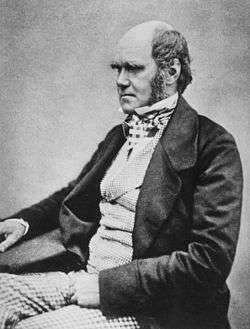Pooh-pooh

A pooh-pooh (also styled as poo-poo)[2] is a fallacy in informal logic that consists of dismissing an argument as being unworthy of serious consideration.[3] Scholars generally characterize the fallacy as a rhetorical device in which the speaker ridicules an argument without responding to the substance of the argument.[4]
Definition
Authors have characterized the fallacy as a form of a straw man fallacy, where an argument is described as inherently worthless or undeserving of serious attention.[5] Some authors have also described the fallacy as the act of "ridicul[ing]" an argument as though it were "a myth",[6] and some characterize it as the act of dismissing an argument "with insults without responding to its substance in any way".[4] Other authors describe the fallacy as the act of dismissing an argument "with the wave of a hand".[7] Some sources also suggest the fallacy is an expression that involves "sneer[ing]",[7] "ridicule",[3] or "malicious comments about the proponent of the argument".[4]
Origins
According to the Oxford Dictionary of English, the term "pooh-pooh" originated in the late eighteenth century as a "reduplication" of the word "pooh", which was a common expression used to express disgust.[8] Some authors also suggest the term originated as a "representation of the act of spitting in sign of contemptuous rejection".[9]
Relationship with the term "party pooper"
Some commentators have suggested that the term "party pooper" is derived from the phrase "pooh-pooh".[10] These commentators argue that the "disdain" a speaker has when "pooh-poohing" a subject could also "describe the negative connotation of a party pooper".[10] However, other sources suggest the term "party pooper" is derived instead from "pooped", a slang word for "exhausted" or fatigued" and that the phrase "party pooper" describes an individual who is tired of a party.[11]
See also
| Look up pooh-pooh in Wiktionary, the free dictionary. |
References
- ↑ "Professor Haeckel on Darwin, Goethe, and Lamarck". Nature. Macmillan. 26: 534. 1882. Retrieved 13 November 2015.
- ↑ See, e.g., Lurie, Morris (2001). Seventeen Versions of Jewishness: 20 Examples. Common Ground. p. 92. ISBN 1863350438.
- 1 2 Munson, Ronald; Black, Andrew (2016). The Elements of Reasoning. Cengage Learning. p. 257. ISBN 1305886836.
- 1 2 3 Virginia Tech Intellectual Prop. (1999). Language and Logic. Kendall Hunt Publishing Company. p. 119. ISBN 0787262439.
- ↑ See, e.g., Munson, Ronald; Black, Andrew (2016). The Elements of Reasoning. Cengage Learning. pp. 149, 257. ISBN 1305886836.
- ↑ Dwight, Joyce Ingle (1976). Is It Really So?: A Guide to Clear Thinking. Westminster Press. p. 115. ISBN 0664247830.
- 1 2 Stanley, Maurice (2002). Logic and Controversy. Wadsworth. p. 98. ISBN 0534573789.
- ↑ Stevenson, Angus (2010). Oxford Dictionary of English. OUP Oxford. p. 1380. ISBN 0199571120.
- ↑ Wedgwood, Hensleigh (1859). Dictionary of English Etymology, Vol. 1. p. xiv. ISBN 9781230255484.
- 1 2 Toeniskoetter, Clare (April 6, 2014). "The etymology of "party pooper"". Michigan Radio. Retrieved November 13, 2015.
- ↑ Wentworth, Harold; Flexner, Stuart Berg (1980). Dictionary of American Slang. Crowell. ISBN 0690006705.